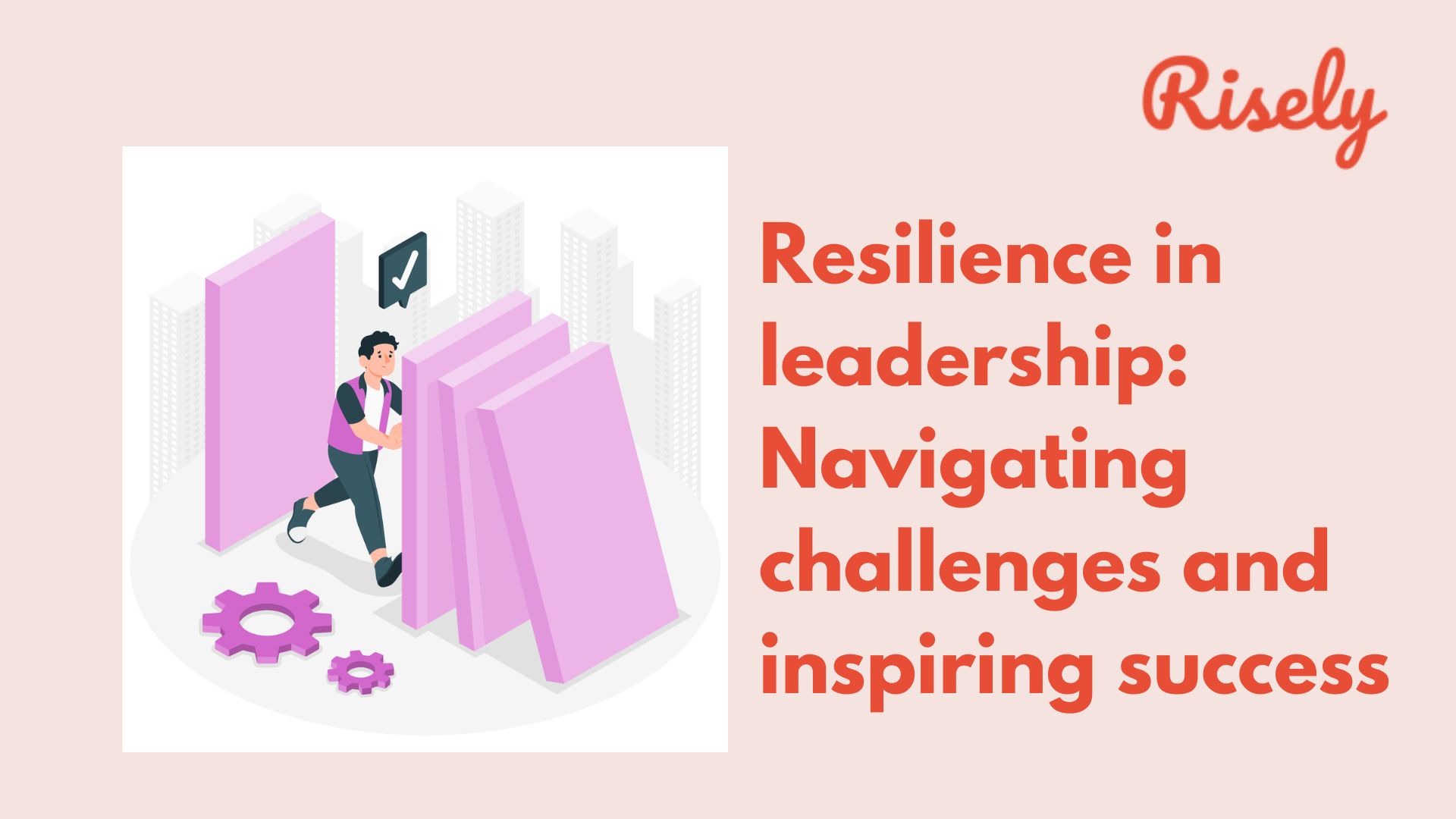Cultivating Resilience: Overcoming Challenges And Building Strength

Table of Contents
Understanding Resilience: What it is and Why it Matters
Defining Resilience
Resilience isn't about being invincible; it's about possessing the ability to bounce back from adversity. It's the capacity to adapt to change, overcome obstacles, and thrive even in the face of significant challenges. Resilient individuals demonstrate a remarkable ability to learn from setbacks, adjust their perspectives, and maintain a positive outlook, even during difficult times. This mental toughness is a crucial life skill, enabling individuals to navigate stressful situations with greater ease and effectiveness.
The Benefits of Resilience
The benefits of cultivating resilience extend far beyond simply overcoming hardship. Building resilience significantly enhances various aspects of your life:
- Improved mental health: Resilience acts as a buffer against stress, anxiety, and depression, promoting better mental wellbeing. Effective stress management techniques are key components of resilience.
- Reduced stress: Resilient individuals are better equipped to handle stress, reducing its negative impact on their physical and mental health.
- Increased self-esteem: Successfully navigating challenges boosts self-confidence and fosters a stronger sense of self-worth.
- Enhanced problem-solving skills: Resilience encourages a proactive approach to problem-solving, leading to more effective solutions.
- Stronger relationships: Resilience promotes empathy and understanding, leading to healthier and more fulfilling relationships.
- Greater life satisfaction: By effectively managing challenges, resilient individuals experience increased overall life satisfaction and a greater sense of purpose.
Identifying and Managing Stressors
Recognizing Your Stressors
Before you can cultivate resilience, you need to understand your personal stressors. These can be physical (lack of sleep, poor diet), emotional (anxiety, grief), or mental (work pressure, financial worries). Effective stress management strategies begin with self-awareness:
- Keep a stress journal: Track situations, thoughts, and feelings that trigger stress. Identifying patterns helps pinpoint your main stress triggers.
- Practice mindfulness: Paying attention to the present moment without judgment helps you become more aware of your physical and emotional responses to stress.
- Seek professional help: If you're struggling to identify or manage your stressors, a therapist can provide valuable guidance and support.
Developing Coping Mechanisms
Once you've identified your stressors, you can develop effective coping mechanisms:
- Exercise: Physical activity releases endorphins, reducing stress and improving mood.
- Meditation and deep breathing techniques: These practices calm the nervous system and promote relaxation.
- Spend time in nature: Connecting with the natural world can be incredibly soothing and restorative.
- Engage in hobbies: Activities you enjoy provide a healthy distraction and boost your mood.
- Seek social support: Talking to trusted friends and family can provide emotional comfort and perspective.
Building Mental Fortitude: Strengthening Your Inner Resilience
Cultivating a Positive Mindset
A positive mindset is a cornerstone of resilience. This doesn't mean ignoring negativity; it's about learning to reframe negative thoughts and cultivate self-compassion:
- Practice gratitude: Focusing on what you're thankful for shifts your attention towards the positive aspects of your life.
- Challenge negative thoughts: Identify and challenge negative thought patterns, replacing them with more realistic and positive ones. This involves cognitive restructuring. Positive self-talk is a powerful tool here.
- Focus on your strengths: Recognizing and utilizing your strengths builds confidence and self-efficacy.
- Celebrate successes: Acknowledge and celebrate your accomplishments, no matter how small.
Setting Realistic Goals and Expectations
Setting achievable goals is crucial for building confidence and avoiding feelings of overwhelm:
- Break down large goals into smaller, manageable steps: This makes progress feel more attainable and less daunting.
- Celebrate small victories: Acknowledge and reward yourself for each step you take towards your goals.
- Learn from setbacks: View setbacks as learning opportunities rather than failures.
Seeking Support and Building a Strong Support System
The Importance of Social Connection
Resilience isn't a solo journey. A strong support network is essential for navigating life's challenges:
- Connect with family and friends: Sharing your experiences and feelings with loved ones provides emotional support and perspective.
- Join support groups: Connecting with others facing similar challenges can provide valuable validation and support.
- Seek professional help: Therapists and counselors provide guidance and tools for managing stress and building resilience.
Identifying and Utilizing Resources
Numerous resources are available to support you in your journey to cultivate resilience:
- Mental health organizations: Many organizations offer support, information, and resources for mental health.
- Online support groups: These online communities provide a safe and anonymous space to connect with others and share experiences.
- Therapy and counseling services: Professional guidance can provide valuable insights and coping strategies.
Conclusion
Cultivating resilience is a journey, not a destination. By identifying your stressors, developing healthy coping mechanisms, building mental fortitude, and fostering a strong support system, you can significantly enhance your ability to navigate life's challenges and emerge stronger. Start cultivating your resilience today. Begin building your resilience by incorporating the strategies outlined in this article. Embrace the journey of cultivating resilience; it's an investment in your well-being and future happiness. Take the first step towards cultivating resilience – your future self will thank you. The power of resilience lies within you; unlock it and transform your life.

Featured Posts
-
 Cadillac F1 Seat Champions Endorsement Boosts Schumachers Chances
May 20, 2025
Cadillac F1 Seat Champions Endorsement Boosts Schumachers Chances
May 20, 2025 -
 Biarritz La Scene Gastronomique Renouvelee Nouveaux Chefs Et Adresses
May 20, 2025
Biarritz La Scene Gastronomique Renouvelee Nouveaux Chefs Et Adresses
May 20, 2025 -
 8 Points En Pro D2 Le Su Agen Valence Romans Et Le Combat Pour Le Maintien
May 20, 2025
8 Points En Pro D2 Le Su Agen Valence Romans Et Le Combat Pour Le Maintien
May 20, 2025 -
 Germany Defeats Italy 5 4 On Aggregate To Reach Uefa Nations League Final Four
May 20, 2025
Germany Defeats Italy 5 4 On Aggregate To Reach Uefa Nations League Final Four
May 20, 2025 -
 Cultivating Resilience Overcoming Challenges And Building Strength
May 20, 2025
Cultivating Resilience Overcoming Challenges And Building Strength
May 20, 2025
